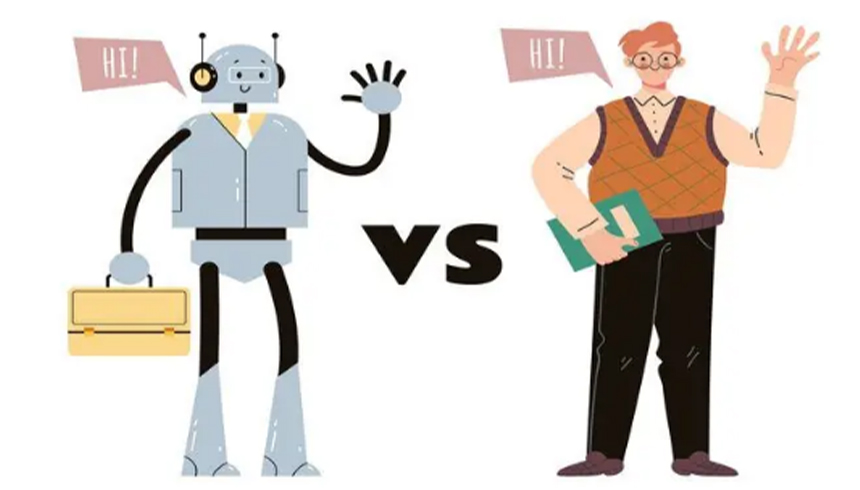
Will AI replace HR Staff
Artificial intelligence has been making waves in various industries, and the field of human resources is no exception. With the rise of AI technology, many are wondering if it will eventually replace HR staff. In this article, we will explore the role of AI in HR and whether it will replace human employees.
The Role of AI in HR
AI technology has the potential to revolutionize the HR industry. It can automate repetitive tasks, analyze large amounts of data, and make data-driven decisions. This can save HR staff time and resources, allowing them to focus on more strategic and human-centric tasks.
Recruitment and Hiring
One of the most time-consuming tasks for HR staff is recruitment and hiring. AI technology can streamline this process by using algorithms to analyze resumes and identify top candidates. It can also conduct initial interviews and assessments, saving HR staff time and resources.
AI can also help eliminate bias in the hiring process by removing identifying information from resumes and focusing solely on qualifications and skills. This can lead to a more diverse and inclusive workforce.
Employee Onboarding and Training
AI technology can also assist with employee onboarding and training. It can create personalized training programs based on an employee's role, skills, and learning style. This can improve the effectiveness of training and ensure that employees have the necessary skills to excel in their roles.
AI can also provide real-time feedback and coaching to employees, helping them improve their performance and reach their full potential.
Performance Management
Performance management is another area where AI can make a significant impact. It can analyze employee data and provide insights on performance, such as identifying top performers and areas for improvement. This can help HR staff make more informed decisions when it comes to promotions, bonuses, and performance evaluations.
AI can also assist with setting goals and tracking progress, providing employees with a clear understanding of their expectations and progress.
Employee Engagement and Retention
Employee engagement and retention are crucial for any organization's success. AI technology can analyze employee data and identify patterns that may indicate low engagement or potential turnover. This can help HR staff intervene and address any issues before they escalate.
AI can also assist with creating personalized employee experiences, such as recommending training opportunities or career development paths. This can increase employee satisfaction and retention.
The Benefits of AI in HR

The use of AI in HR can bring numerous benefits to organizations. Some of the most significant advantages include:
Increased Efficiency and Cost Savings
By automating repetitive tasks and streamlining processes, AI can save HR staff time and resources. This can lead to increased efficiency and cost savings for organizations.
Improved Decision-Making
AI technology can analyze large amounts of data and provide insights that can help HR staff make more informed decisions. This can lead to better hiring, training, and performance management practices.
Reduced Bias
As mentioned earlier, AI can help eliminate bias in the hiring process by focusing solely on qualifications and skills. This can lead to a more diverse and inclusive workforce.
Enhanced Employee Experience
AI can create personalized employee experiences, such as recommending training opportunities or career development paths. This can increase employee satisfaction and engagement.
Better Compliance
AI technology can assist with ensuring compliance with laws and regulations, such as equal employment opportunity laws. This can help organizations avoid legal issues and penalties.
Will AI Replace HR Staff?
No, AI in HR does not replace humans entirely. While AI technology has the potential to automate many HR tasks, it is unlikely that it will completely replace HR staff. AI is best used as a tool to assist HR staff, not replace them.
The Human Element
One of the main reasons why AI will not replace HR staff is the human element. HR staff are responsible for managing the human aspect of an organization, such as employee relations, conflict resolution, and career development. These tasks require empathy, emotional intelligence, and critical thinking, which AI technology cannot replicate.
Limitations of AI
While AI technology has advanced significantly in recent years, it still has limitations. AI cannot replace the human touch when it comes to understanding complex emotions and situations. It also cannot make ethical or moral decisions, which are crucial in HR.
Cost and Implementation
Implementing AI technology can be costly and time-consuming. Many organizations may not have the resources or budget to invest in AI technology. Additionally, AI technology may not be suitable for all organizations, and it may not be able to adapt to the unique needs of each organization.
The Future of AI in HR
While AI may not replace HR staff, it will undoubtedly continue to play a significant role in the HR industry. As technology advances, AI will become more sophisticated and capable of handling more complex tasks. This will allow HR staff to focus on more strategic and human-centric tasks, leading to a more efficient and effective HR department.
Conclusion
AI technology has the potential to revolutionize the HR industry, but it will not replace HR staff. Instead, it will assist HR staff in their roles, allowing them to focus on more strategic and human-centric tasks. The use of AI in HR can bring numerous benefits to organizations, including increased efficiency, improved decision-making, and enhanced employee experiences. As technology continues to advance, the role of AI in HR will only continue to grow.
Author: Oksana Day, SHRM-CP